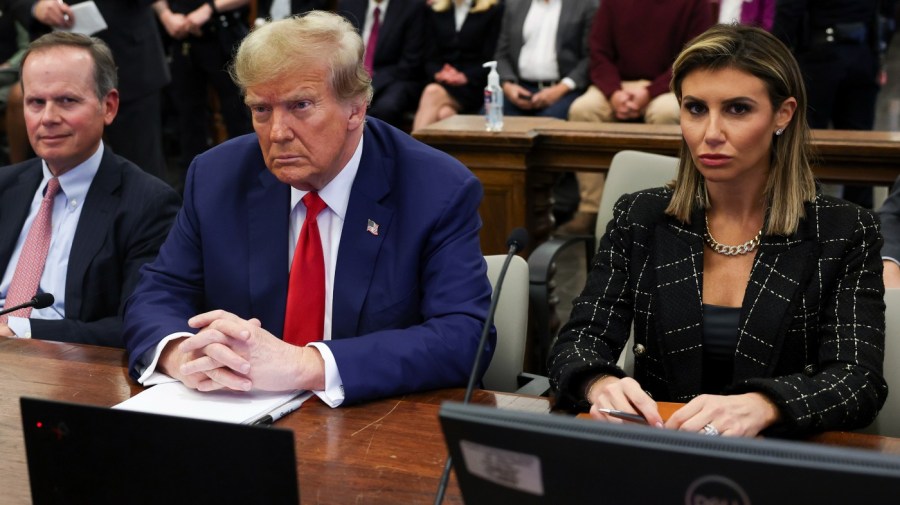Oregon Supreme Court won’t remove Trump from ballot, for now
The Oregon Supreme Court enabled former President Trump to remain on the state’s primary ballot Friday, declining to take up a challenge to his eligibility, for now.
The court said it would instead wait for the U.S. Supreme Court’s upcoming decision on whether Trump can be disqualified from the ballot under the 14th Amendment.
“Because a decision by the United States Supreme Court regarding the Fourteenth Amendment issue may resolve one or more contentions that relators make in the Oregon proceeding, the Oregon Supreme Court denied their petition for mandamus, by order, but without prejudice to their ability to file a new petition seeking resolution of any issue that may remain following a decision by the United States Supreme Court,” the court said in a release.
Anti-Trump groups have filed challenges to Trump’s ballot placement in states across the country, although most of the lawsuits have largely been unsuccessful.
The Oregon lawsuit was filed on behalf of five voters by nonprofit Free Speech For People, which has helped lead a national campaign seeking Trump’s removal.

Former U.S. President Donald Trump, with lawyers Christopher Kise and Alina Habba, attends the closing arguments in the Trump Organization civil fraud trial at New York State Supreme Court in the Manhattan borough of New York, Thursday, Jan. 11, 2024. (Shannon Stapleton/Pool Photo via AP)
In total, the group has filed challenges to Trump’s ballot eligibility in five states. Courts have declined to remove Trump’s name on the ballot in response to their challenges in Michigan and Minnesota, but the group has also filed lawsuits in Illinois and Massachusetts that remain pending.
The Hill has reached out to Free Speech For People for comment.
In two states — Colorado and Maine — the top state court and top elections official, respectively, took the extraordinary step last month of removing the former president’s name from their primary ballots in response to challenges filed by other groups. Those rulings are on hold as Trump appeals.
The U.S. Supreme Court agreed to take up the Colorado case, equipping the justices with a pathway to provide a national resolution on the 14th Amendment’s insurrection ban in advance of the general election. The case is being heard at a speedy pace, with oral arguments set for Feb. 8.
Top Stories from The Hill
- Speaker Johnson sticks by deal struck with Dems despite GOP complaints
- Greene denounces Yemen strikes, pointing to Biden’s past criticism of Trump
- Democrats reject Johnson’s border demands as part of Ukraine aid package
- Massie, CNN anchor battle over Israel, antisemitism resolution: ‘If you’d done a little more research’
In announcing it would wait for that decision, Oregon’s high court noted the state is not set to finalize its presidential primary ballots until March 21.
The 14th Amendment’s Insurrection Clause prohibits someone from holding federal office if they “engaged in insurrection” after taking an oath to support the Constitution. Anti-Trump plaintiffs have cited Trump’s actions surrounding the Jan. 6, 2021, attack on the Capitol as a violation.
Trump’s lawyers argued his actions do not amount to engaging in insurrection, contending the challenges must be thrown out because of several threshold arguments, like that the provision doesn’t apply to the presidency and would need legislation from Congress to be enforceable.
“Today’s decision in Oregon was the correct one,” Trump spokesperson Steven Cheung said in a statement.
“President Trump urges the swift dismissal of all remaining, bad-faith, election interference 14th Amendment ballot challenges as they are un-Constitutional attempts by allies of Crooked Joe Biden to disenfranchise millions of American voters and deny them their right to vote for the candidate of their choice,” he continued. “President Trump will continue to fight these desperate shams, win in November and Make America Great Again.”
Copyright 2024 Nexstar Media Inc. All rights reserved. This material may not be published, broadcast, rewritten, or redistributed..













